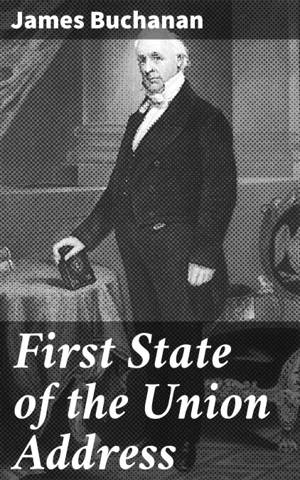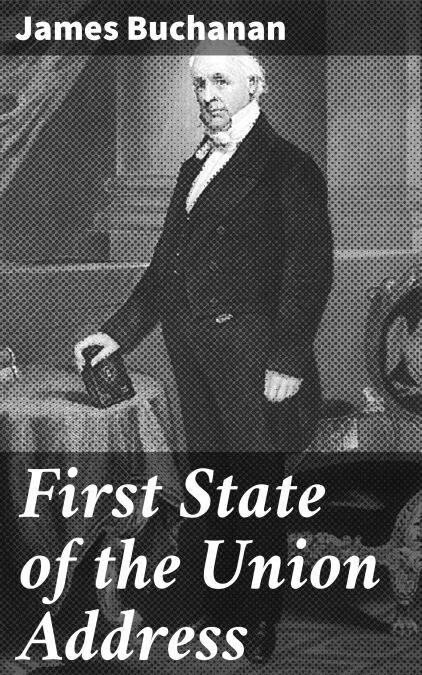
Bedankt voor het vertrouwen het afgelopen jaar! Om jou te bedanken bieden we GRATIS verzending (in België) aan op alles gedurende de hele maand januari.
- Afhalen na 1 uur in een winkel met voorraad
- In januari gratis thuislevering in België
- Ruim aanbod met 7 miljoen producten
Bedankt voor het vertrouwen het afgelopen jaar! Om jou te bedanken bieden we GRATIS verzending (in België) aan op alles gedurende de hele maand januari.
- Afhalen na 1 uur in een winkel met voorraad
- In januari gratis thuislevering in België
- Ruim aanbod met 7 miljoen producten
Zoeken
First State of the Union Address E-BOOK
A Comprehensive Overview of Antebellum Politics and Presidential History
James Buchanan
E-book | Engels
€ 1,99
+ 1 punten
Omschrijving
James Buchanan's 'First State of the Union Address' is a seminal piece of political literature that serves as a comprehensive overview of the state of the nation during his presidency. Written in a direct and informative style, this address provides insights into the pressing issues of the time, such as territorial expansion, slavery, and economic policies. Buchanan's use of language is both eloquent and persuasive, reflecting the political rhetoric of the mid-19th century. The address is a valuable primary source for historians and political scholars interested in understanding the challenges faced by the United States in the years leading up to the Civil War. James Buchanan, as the 15th President of the United States, was uniquely positioned to deliver this address, drawing on his years of political experience and knowledge of American history. His background as a lawyer and diplomat undoubtedly influenced his approach to addressing the nation's concerns with clarity and authority. I highly recommend 'First State of the Union Address' to readers interested in American political history and the presidency of James Buchanan, a pivotal figure in antebellum politics.
Specificaties
Betrokkenen
- Auteur(s):
- Uitgeverij:
Inhoud
- Aantal bladzijden:
- 36
- Taal:
- Engels
Eigenschappen
- Productcode (EAN):
- 4064066406301
- Verschijningsdatum:
- 7/12/2020
- Uitvoering:
- E-book
- Beveiligd met:
- Digital watermarking
- Formaat:
- ePub

Alleen bij Standaard Boekhandel
+ 1 punten op je klantenkaart van Standaard Boekhandel
Beoordelingen
We publiceren alleen reviews die voldoen aan de voorwaarden voor reviews. Bekijk onze voorwaarden voor reviews.









